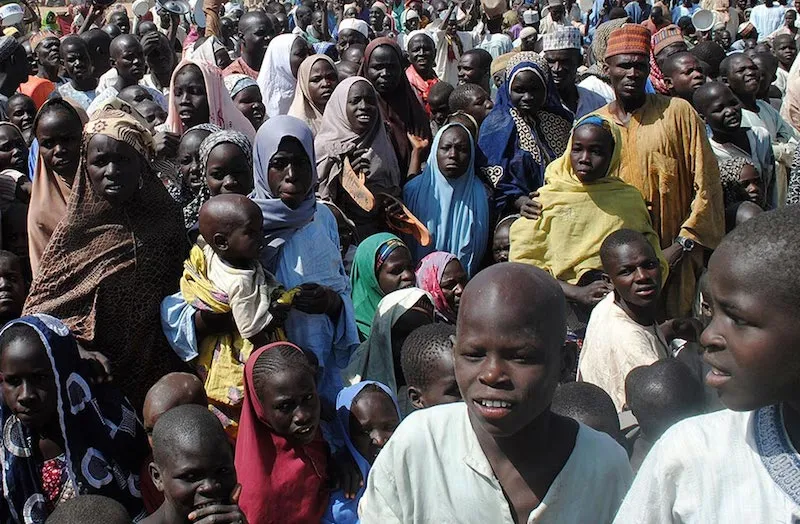AT LEAST one million, eighty-seven thousand, eight hundred and seventy-five (1,087,875) people are reported to have been displaced in the North-West, Nigeria as a result of either clashes between herders and farmers or banditry, kidnapping and cattle rustling.
Of this figure, women and children are the worse hit as they constitute the biggest number whereas, in Katsina State alone, a total of 223,473 persons are said to have been displaced.
The Coordinator of the Displacement Tracking Metrix, Dennis Wani made the revelation on Tuesday during the official launch of the Conflict Mitigation and Community Reconciliation Project in North-West held in Katsina State as a pilot.
The program was put together by the United Nations International Organisation For Migration (IOM) in collaboration with Mercy Corps, Katsina State Government, and other key partners.
The 18 months period program targeting four LGAs of Jibia, Danmusa, Batsari, and Kankara of Katsina State is aimed at reducing community violence, promoting more community-driven peace initiatives, and mitigating conflicts over natural resources in the region.
In his remarks, the Chief of Mission, International Organisation for Migration (IOM), Laurent De Boeck, said technical officials from the state government, community and opinion leaders, and other actors were deployed from the four LGAs to introduce the project.
The aim he said is to bring joint access to success, looking forward to working closely with them and continuing with the advocacy with the development partners including the European Union to support the humanitarian needs of the state and the peace-building and conflict mitigation.
“At the community level, we ensure that there is a reconciliation process and we dialogue with the community to find solutions. That’s why we have launched the program with specific committees at the village level with the community leaders and other key stakeholders to be able to find solutions.
“The objective is to put people together having a dialogue because the problem has already been identified.
“We will be giving them support. For example, if it’s access to potable water, we will dig well, and they pump with solar energy which will serve water to everybody.
“Both the community, the state, and local government areas have a huge role to play in finding solutions to the problem,” he added.
The project, which will last until April 2024, is expected to be extended so that security will be restored in Katsina and other states in the North-West.







